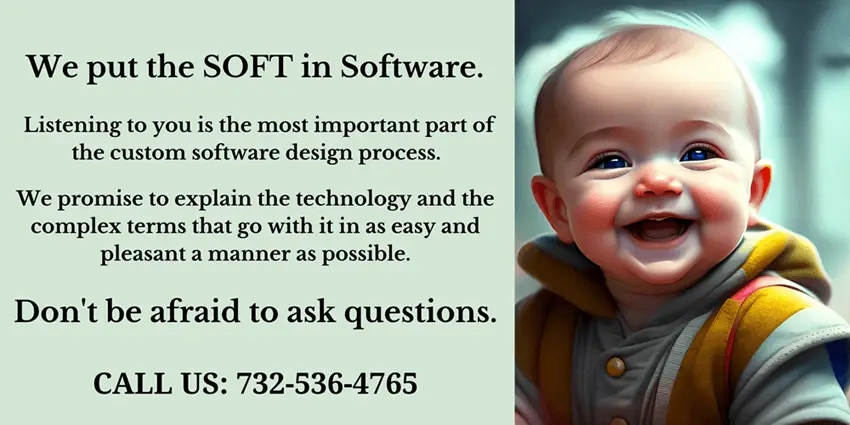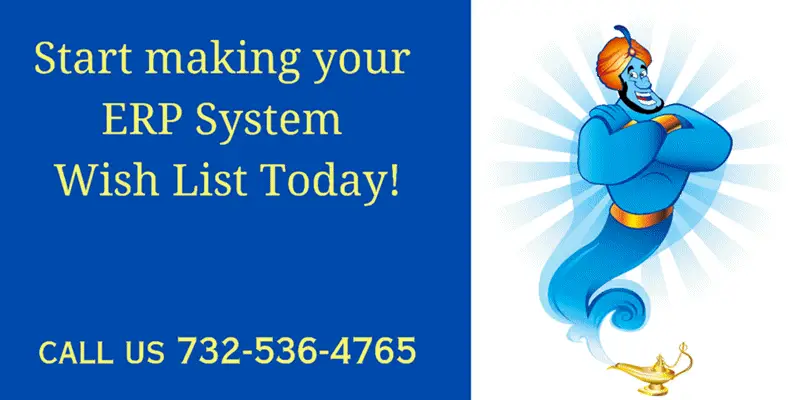The 7 Disadvantages of Commercial Software to Custom Software
What’s the difference between ordering the house burger and telling the waitress you want a burger specific to your liking?
Your meal gets cooked the way you like it. Doing things exactly how you need them is the key to excellence in everything.

Here are the seven disadvantages of using generic software compared to a customized solution:
You have to pay twice:
First, you pay for the off-the-shelf software, which can cover 2/3 of what you need. Then you pay again for the vendor to customize your software to your specific needs.
Every business is different. The industry is different. The size, location, logistics of getting materials to the warehouse and the final product to the customer, rate of growth, number of employees, productivity, and specific operations are all different.
It’s like a snowflake — each one sports a matrix of shapes and lines where no two are alike. Using generic software, especially for something like an ERP system, to reduce cost and increase productivity is like buying a square peg to fit into the rounded architecture of your business.
Commercial software vendors will charge as much to customize their generic software as they will sell it to you. A custom software application costs you once. Everything is tailor-made from the start.
You Have to Play their Game:
If their software won’t adapt to your business, your business has to adapt to their software.
If a specific customization costs too much money, it might not happen, and the software won’t work well with the particular process it is supposed to digitalize. You might have to resort to duct-tape solutions or even worse. You might have to change your day-to-day operations to accommodate the software.
This guarantees productivity will fall.
Custom software is like a tool vest tailored to your job. Every piece of equipment is on there for a reason: to make your business operate smoother.
You Start Paying for Something you Don’t Need:
Ever get a business lunch where you have an appetizer, soup, main dish, drink, and dessert? A regular meal costs $15, but the business options go for $19.95.
What if you don’t want the soup? Can you get a combo for $16.50? Probably not. Even if you don’t want the rest, you must take it – and pay for it.
Some features offered by standardized software are useful, while others are pointless. It makes these options somewhat of a black box.
It can be worse on the cloud if you have to pay to hold these features on the platform even if you aren’t using them. Custom software gives you a financial edge by simply not building or installing things that you won’t ever need.
You Don’t Get What you Do Need:
Commercial software can give you 90% of what you need and still lack certain functions. They can offer everything but with some functions not up to par. This puts you in a difficult situation where you either have to pay them more to give you a personal update or adjust your business to the software.
A custom solution will have everything you need exactly how you want it.
Security Vulnerabilities:

The more popular the software, the more users and the more money there is for hackers to find ways to breach it.
Custom software can include customized layers of security nobody has ever seen before. Since these security layers only protect a single system – yours- hackers have little incentive to put in the effort.This can dramatically reduce the danger of attack.
Helpless over the Future of Your Own Technology:
Since you don’t have access to the code, you don’t know where it’s going. You don’t know if a feature will be altered or deprecated in the next update. Your business might rely on specific functions that won’t be in the next version. You can wake up the next day with half your systems blinking red.
Years after you paid for the system, licensing fees, and support, commercial software can change something vital that makes it no longer compatible with your business.
You own your custom software. You own the updates. You own the changes. The only person who decides where your systems are going is you.
Return On Total Investment:

While off-the-shelf software options might sport a lower price tag, the overall costs change the equation. For generics, you have to pay licensing fees, support, maintenance, and customization for things it isn’t equipped to do that your business cannot run without.
The overall cost of generic software amounts to roughly the same as custom solutions, but the advantages of having everything you need, not paying for the things you don’t, and tailoring your software to exactly how you work generate returns that are superior to the alternative.
Saving your business time and money constantly with a custom software application or ERP System is what we specialize in. I am happy to talk with you about it at your convenience or call us now at: 732-536-4765.
Some Of the Custom Software Srvices We Provide:
- Maintain Visual FoxPro Applications.
- Convert Visual FoxPro into the cloud.
- MS Access Consultants.
- Web scrapping development.
- Alpha AnyWhere Development.
- Custom ERP for manufactures.


Comments